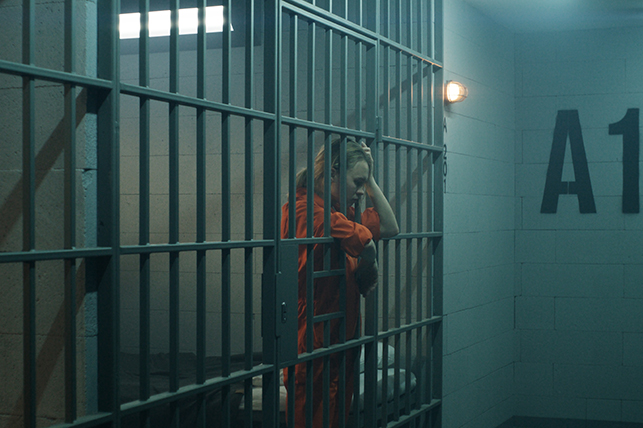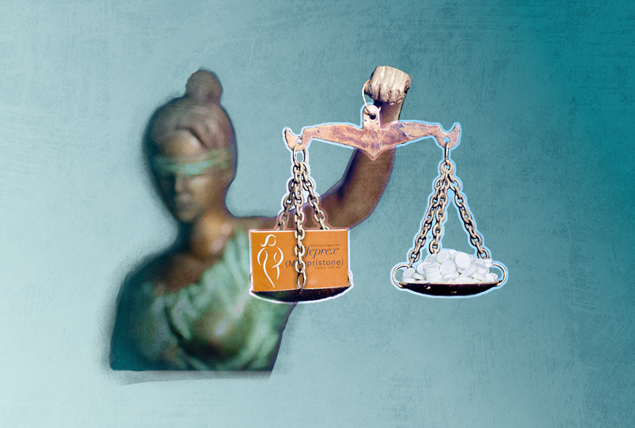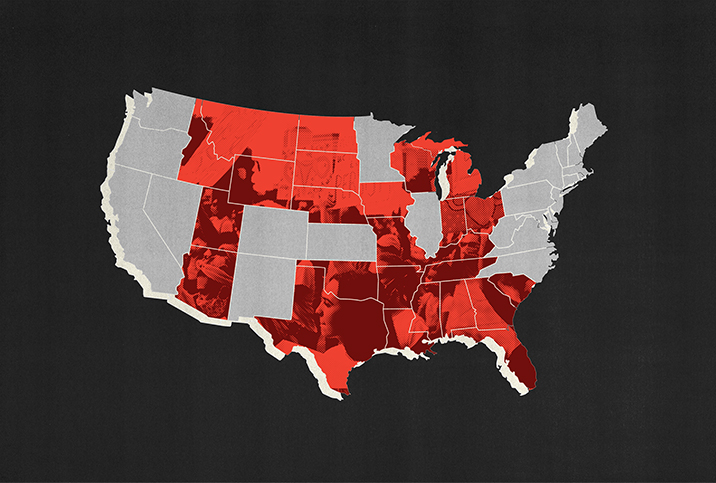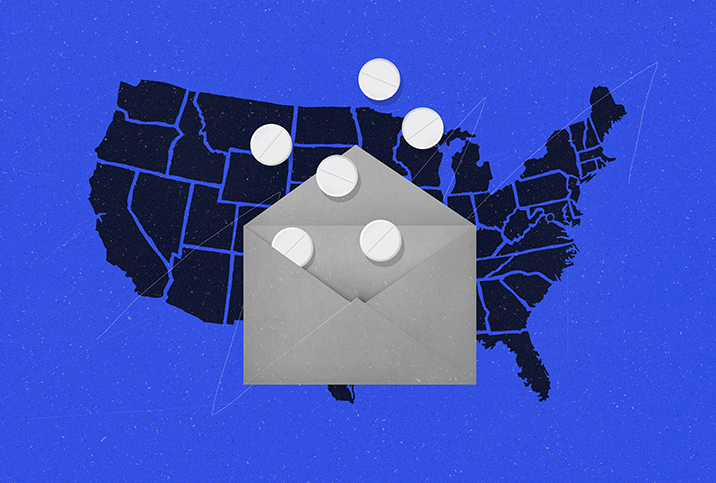Arizona Revives 160-Year-Old Abortion Ban

Key Points
- Under Arizona's Civil War-era law, abortion is illegal and "every person" who facilitates an abortion can be punished with fines and two to five years in prison.
- Arizona Governor Katie Hobbs called on the state Legislature for "an immediate repeal of this draconian bill."
- GOP Presidential Candidate Donald Trump said, "It's all about state's rights, and that'll be taken care of, I think, very quickly."
Is abortion legal in Arizona?
Update: The Arizona Senate voted Wednesday, May 1, to scrap an 1864 law criminalizing all abortions except those necessary to save a pregnant person's life.
The senate's vote clears the way for the bill to head to Governor Katie Hobbs' desk after the House of Representatives previously voted to do the same on April 24. Hobbs has said she would sign the bill if it were advanced to her.
The House advanced the repeal measure when three Republicans broke party lines and sided with all 29 Democrats in the Republican-controlled Legislature to create a 32-28 majority.
Arizona's Supreme Court previously ruled Tuesday, April 9, to revive an 1864 law criminalizing all abortions except those necessary to save a pregnant woman's life.
The Civil War-era statute supersedes a 2022 lower court ruling that allows doctors to perform abortions in the first 15 weeks of pregnancy. Yes, there was abortion in early America.
What is the law from 1864?
Written before Arizona gained statehood in 1912, the 1864 law was dormant for 50 years after the U.S. Supreme Court's decision in Roe v. Wade on Jan. 23, 1973, which protected the constitutional right to abortion nationwide.
In Arizona, abortion is illegal and there are no exceptions for cases of rape or incest and states that "every person" who facilitates an abortion can be punished with fines and two to five years in prison.
If the ruling holds, Arizona will be the 14th state in the U.S. with a near-total abortion ban.
Since the U.S. Supreme Court overturned Roe v. Wade in June 2022, abortion rights supporters and opponents have debated whether the 19th-century ban could be reinstated. Although it was never repealed, Planned Parenthood Arizona and other abortion-rights supporters have said more recent laws—primarily the 2022 legislation—have essentially replaced it.
What did the ruling say about restricting abortion?
In a 4-2 ruling, Arizona justices said the Supreme Court's ruling in Dobbs v. Jackson Women's Health Organization made the old law enforceable.
The 2022 ban was predicated entirely on a federal constitutional right to abortion which was now absent and didn't independently authorize abortion access, Justice John Lopez wrote in the majority opinion.
"Physicians are now on notice that all abortions, except for those necessary to save a woman's life, are now illegal," the justice wrote.
The court concluded that it had merely interpreted the law but wouldn't make a policy decision, leaving that task to the state legislature and citizens.
"We defer, as we are constitutionally obligated to do, to the legislature's judgment, which is accountable to, and thus reflects, the mutable will of our citizens," Justice Lopez wrote.
Recommended
- Abortion: Myths & Misconceptions: Common myths create added stigma around a medical procedure that is both safe and legal.
- You Have Options if You Decide to Have an Abortion: There are many choices and factors to consider after you decide to terminate a pregnancy.
- Suffering in Silence: Abortion's Emotional Aftermath for Men: Men can hurt after an abortion, too—sometimes with serious psychological ramifications.
What happens now?
The court said it wouldn't begin enforcing the decision for 14 days to enable plaintiffs to make additional arguments in a lower court.
A delayed enforcement agreement, signed by former Arizona Attorney General Mark Brnovich, extends the stay for an additional 45 days. Brnovich, a Republican, previously persuaded a state judge to lift an injunction blocking the enforcement of the old ban. His Democratic successor, General Kris Mayes, convinced the state's highest court to suspend the law.
Democratic lawmakers and lawyers representing abortion providers are now searching for additional means to delay the ruling, and efforts are underway to codify abortion rights in the Arizona state constitution, NBC News shared.
Experts believe it's unlikely the ban will be enforced anytime soon, as the case could take quite a while to wend its way through the trial courts, according to CNN.
Meanwhile, the decision has instigated a political firestorm and heated discontent from both sides.
President Biden called the ban "cruel," in an April 9, 2024 official statement and former president Donald Trump told reporters Wednesday that the court had gone too far.
"It's all about state's rights, and that'll be straightened out," Trump said, according to CBS News. "I'm sure that the governor and everybody else are going to bring it back into reason, and that'll be taken care of, I think, very quickly."
Republican Senate candidate Kari Lake, who has called abortion the "ultimate sin" and supported Texas' restrictive ban, issued a statement opposing the decision and called on
Arizona Governor Katie Hobbs and the state legislature to propose a "common sense solution that Arizonans can support," AZ Central shared.
In a statement made the day following the ruling, Hobbs, a Democrat, said the decision was "unconscionable" and called on the state Legislature for "an immediate repeal of this draconian bill."
On Wednesday, GOP legislators thwarted Democrats' efforts to do so.
"One thing is clear: Democrats are so eager to enshrine in our state constitution a right to kill unborn children up until birth with virtually no restrictions," Republican Arizona House Speaker Ben Toma said in an April 10, 2024, statement.
"The Democrats' approach to this issue is unconscionable; it's extreme and Arizonans do not agree with such an unrestricted right to abortion that would jeopardize women's health and safety," Toma said.
The legislature needs more time to "listen to constituents and carefully consider appropriate actions" before furthering the discussion, he added.
The state attorney general's office hasn't prosecuted cases under the current 15-week abortion ban. Attorney General Kris Mayes and several county attorneys have said they won't prosecute cases under the new law, either. However, county prosecutors could challenge that position in court.
In June, Hobbs signed an executive order handing authority in abortion-related cases to the state attorney general. The aim, she told CNN, was to prevent an "extreme" county attorney from criminalizing patients or doctors seeking or providing care.
Even so, because providers will likely be unwilling to perform illegal procedures, analysts believe the new law will have a chilling effect on reproductive care in the state.
Pre-Dobbs in April and May 2022, there were about 1,4000 abortions a month in Arizona, according to estimates from the Society of Family Planning.
That number is expected to drop to nearly zero if the bans on abortion go into effect.
Abortion rights advocates are encouraging people to get health care and abortion service while it's still available and head to the polls this November.
Arizona for Abortion Access, a coalition of reproductive rights organizations, including Planned Parenthood Advocates of Arizona and the ACLU of Arizona, announced earlier this month that they have more than enough signatures to put a constitutional amendment protecting abortion access on the ballot, the AZ Mirror shared.
The proposed amendment would enshrine the right to terminate a pregnancy until fetal viability—when a fetus can survive outside the womb—or around 24 weeks of pregnancy.
The bottom line
An estimated 62 percent of Arizonans believe abortion should be legal in most or all cases, according to a February 2023 survey by nonpartisan research organization Public Religion Research Institute.
If voters approve the measure, it will nullify the Civil War-era ban. It will also preserve the right to abortion care after the point of fetal viability in situations where it's necessary to save a woman's life or protect their health. Being denied an abortion can have a lasting impact on mental health, even leading to an increase in suicide.


















